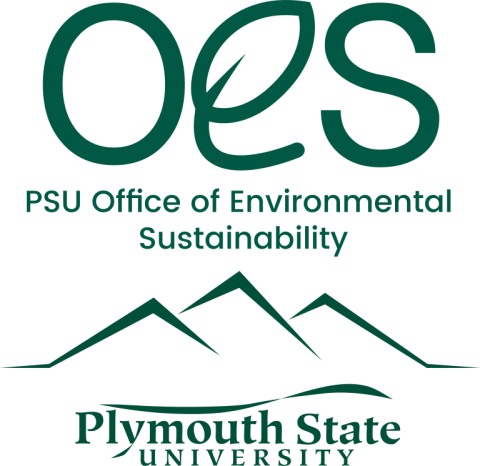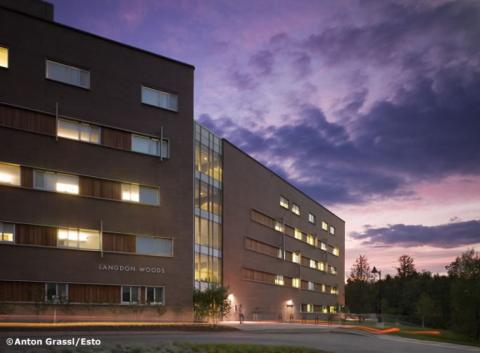
Plymouth State University’s efforts on sustainability are anchored in a commitment to educate students about a sustainable lifestyle, to study and care for the environment, and to promote sustainability to the campus community and the world beyond. Sustainability efforts are evident throughout campus; in a program that integrates sustainability across the curriculum, in residential life and dining services. For over 25 years, Common Ground, a student environmental and social justice organization, has been focusing on environmental issues through events and service projects. The University’s commitment to the environment also encompasses a new courses and majors aimed at preparing graduates for careers in environmental science, stewardship, and policy; a long-standing campus-wide recycling program; and EcoHouse, a “living-learning laboratory” that shows students how even small-scale environmental design features can have important environmental implications.

Langdon Woods LEED Certified Residence Hall
The University has taken a leadership role among the nation’s most environmentally friendly institutions of higher education by signing the American College and University Presidents Climate Commitment. PSU’s commitment to “green building” was realized by the 2006 opening of the Langdon Woods Residential Complex, the first building in New Hampshire—and one of the first and largest university residence halls in the country—to receive the U.S. Green Building Council’s Leadership in Energy and Environmental Design (LEED) Gold certification at the time. The work has continued with many innovative projects you can learn more about on this site. The Office of Environmental Sustainability works in partnership with all members of the PSU community to engage students to advance the University’s goals on sustainability.
The Office of Environmental Sustainability works with students, faculty, and staff from across campus to achieve our goals. We employ many talented students every year, who perform roles essential for the success of our efforts. A small number of staff in our office work to coordinate these efforts and facilitate our continued progress towards achieving our sustainability goals.
Professor of Social Science
Plymouth State University
17 High Street, MSC #39
Plymouth, NH 03264
(603) 535.2497
bweisenhauer@plymouth.edu
In 2007, Plymouth State University (PSU) demonstrated its commitment to being a campus leader in sustainability by becoming a charter signatory of the American College and University Presidents’ Climate Commitment (ACUPCC). As part of that commitment, the University developed a Climate Action Plan in January of 2010, pledging to reduce campus greenhouse gas (GHG) emissions 50% by 2025 and to make its operations greenhouse gas neutral by 2050. Such aggressive goals will not be achieved easily, and PSU will need to plan and implement projects far beyond business as usual operations in order to accommodate such reduction targets. Doing so is a complex process that requires extensive analyses and planning.
In 2013 we worked with Greener U to develop a Climate Action Implementation Plan, which provides tangible steps and timelines for achieving our sustainability goals. This implementation plan outlines next steps that need to be taken to keep PSU moving toward the climate change goals we have pledged to meet, and attempts to address the challenges to and resources needed for successful implementation. We are proud to share our carefully crafted plans to reduce our environmental impacts, and we look forward to working with our campus community as well as our many “off-campus” partners to achieve our goals.
The PSU Climate Action Plan provides the institution with a road map for achieving carbon neutrality by 2050, increasing the focus of sustainability across the curriculum, and enhancing research and community interaction. The report analyzes PSU’s contributions to greenhouse gas emissions, recognizes the University’s actions to date on reducing emissions, and outlines major changes in energy production and conservation measures that will enable PSU to meet its commitment of reducing emissions by 50 percent in 2025 and to fully eliminate emissions by 2050.
For More Information
For more information on the activities, minutes, and achievements of the commission, see the commission’s Green Up blog: “improving campus life while reducing PSU’s environmental footprint.”

